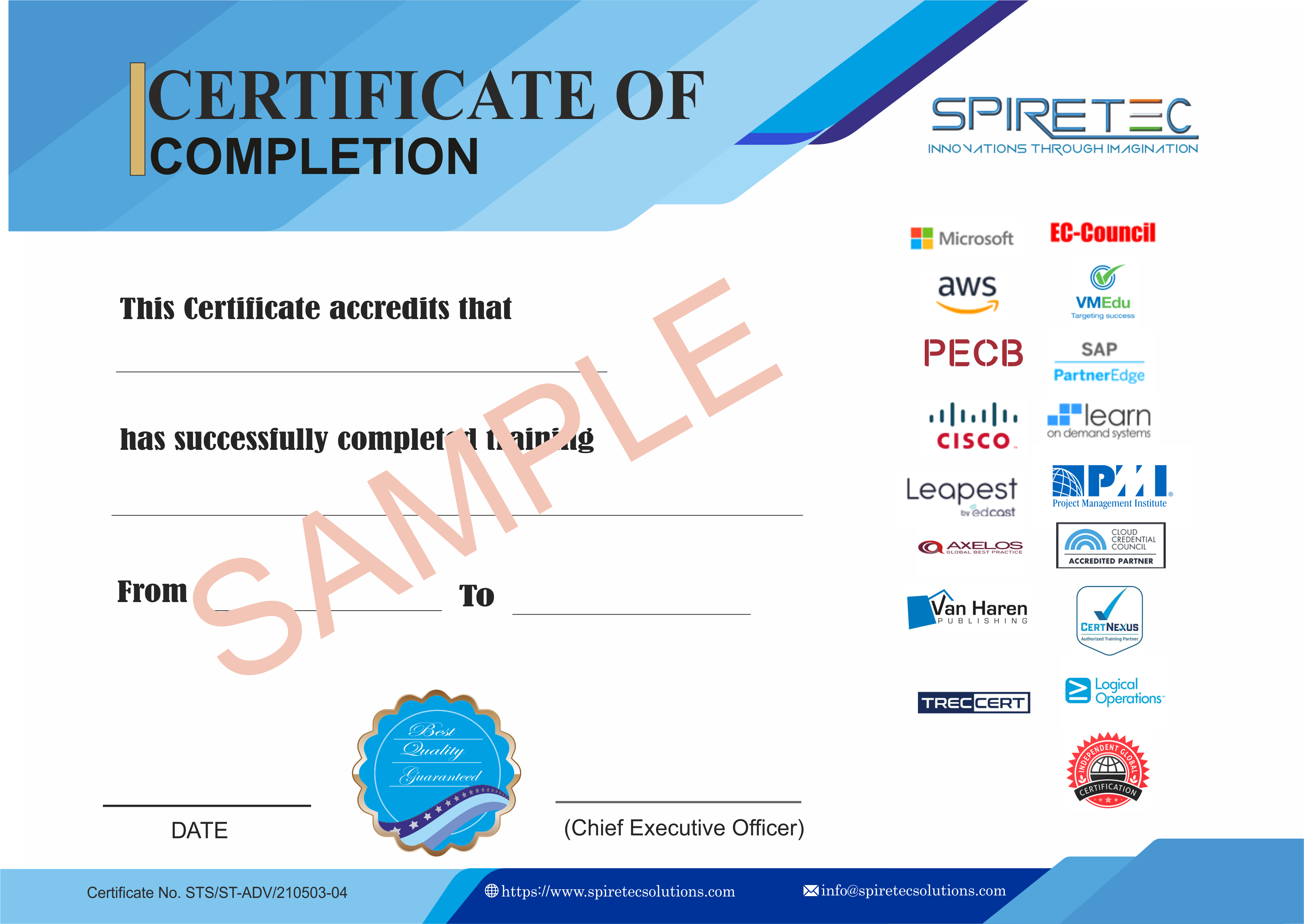What is PMI-RMP Certification?
Risk management is a critical aspect of all organizational activities because risks can lead to delays, increased expenses, missed objectives, and even project failure. However, effective risk management can offer a competitive advantage and create opportunities.
The PMI Risk Management Professional (PMI-RMP)® certification positions you as the risk specialist your organization needs to handle these challenges effectively.
Exam Languages
The PMI-RMP exam is available in the following languages: Arabic, Chinese (Simplified), and English.
Benefits of PMI-RMP Certification
Earning the PMI-RMP certification assures that you have the expertise to:
-
Spot problems before they occur.
-
Mitigate threats to project success.
-
Master risk management fundamentals and techniques.
-
Maximize results and meet deadlines.
-
Leverage and create opportunities.
-
Save resources for your project and organization.
The PMI-RMP exam now includes considerations for agile and hybrid environments, as well as enterprise-level risks that project managers need to address.
How to Get Your PMI-RMP Certification
Plan
Map out your plan to achieve PMI-RMP certification and elevate your career.
Prepare
Utilize a wide range of study resources to prepare effectively for the exam.
Take the Exam
Once eligibility is confirmed and the exam fee is paid, you’ll be ready to schedule and take the exam.
Why Earn the PMI-RMP Now?
Project risk management is a vital skill that increases the likelihood of project success and reduces stakeholder anxiety. Demonstrate your advanced knowledge and experience in risk management, even for large and complex projects, with the PMI-RMP certification.
The PMI-RMP is particularly suited to:
-
Project Managers
-
Risk Managers
-
Functional Managers
-
C-Suite Executives
Am I Eligible for the PMI-RMP Exam?
Eligibility requirements for the PMI-RMP exam are:
With a Secondary Degree (High School Diploma, Associate’s Degree, or the Global Equivalent):
With a Four-Year Degree (Bachelor’s Degree or the Global Equivalent):
Course Outline:
Chapter 1: INTRODUCTION TO RISK MANAGEMENT
-
What is Risk Management?
-
Definition of Risk and Risk Management
-
Importance of Risk Management in Projects
-
Key Terms in Risk Management
-
Who Manages Risks?
-
Objectives of Risk Management
-
Identifying, Assessing, and Managing Risks
-
Aligning Risk Management with Organizational Strategy
Chapter 2: RISK MANAGEMENT FRAMEWORK AND PROCESSES
-
Introduction to Risk Management Processes
-
PMI’s Standard for Risk Management
-
Overview of Risk Management Process Groups (Identify, Analyze, Plan Response, Monitor)
-
Risk Management Planning
-
Purpose and Importance of the Risk Management Plan
-
Developing a Risk Management Plan
-
Defining Risk Tolerances and Thresholds
-
Risk Breakdown Structure (RBS)
-
Risk Identification
Chapter 3: RISK ANALYSIS
-
Qualitative Risk Analysis
-
Prioritizing Risks Based on Probability and Impact
-
Risk Probability and Impact Matrix
-
Using Risk Urgency and Categorization for Prioritization
-
Quantitative Risk Analysis
-
Tools for Quantitative Risk Assessment
-
Monte Carlo Simulation, Decision Trees, and Sensitivity Analysis
-
Interpreting the Results of Quantitative Analysis
Chapter 4: RISK RESPONSE PLANNING
-
Developing Risk Response Strategies
-
Strategies for Threats (Avoid, Mitigate, Transfer, Accept)
-
Strategies for Opportunities (Exploit, Enhance, Share, Accept)
-
Contingency Planning and Risk Reserves
-
Risk Ownership and Responsibility
Chapter 5: MONITORING AND CONTROLLING RISKS
-
Monitoring Risks
-
Controlling Risks
-
Risk Reporting
Chapter 6: RISK COMMUNICATION AND STAKEHOLDER ENGAGEMENT
-
Importance of Risk Communication
-
Stakeholder Risk Tolerance and Engagement
-
Collaboration and Team Involvement in Risk Management
Chapter 7: ADVANCED RISK MANAGEMENT TECHNIQUES
-
Advanced Risk Analysis Tools
-
Scenario Analysis, Expected Monetary Value (EMV), and Risk Models
-
Using Advanced Tools for Strategic Risk Management
-
Emerging Trends in Risk Management
Chapter 8: PROFESSIONAL ETHICS AND STANDARDS
-
PMI Code of Ethics and Professional Conduct
-
Maintaining Professionalism in Risk Management







 Live Online Training (Duration : 32 Hours)
Live Online Training (Duration : 32 Hours)
